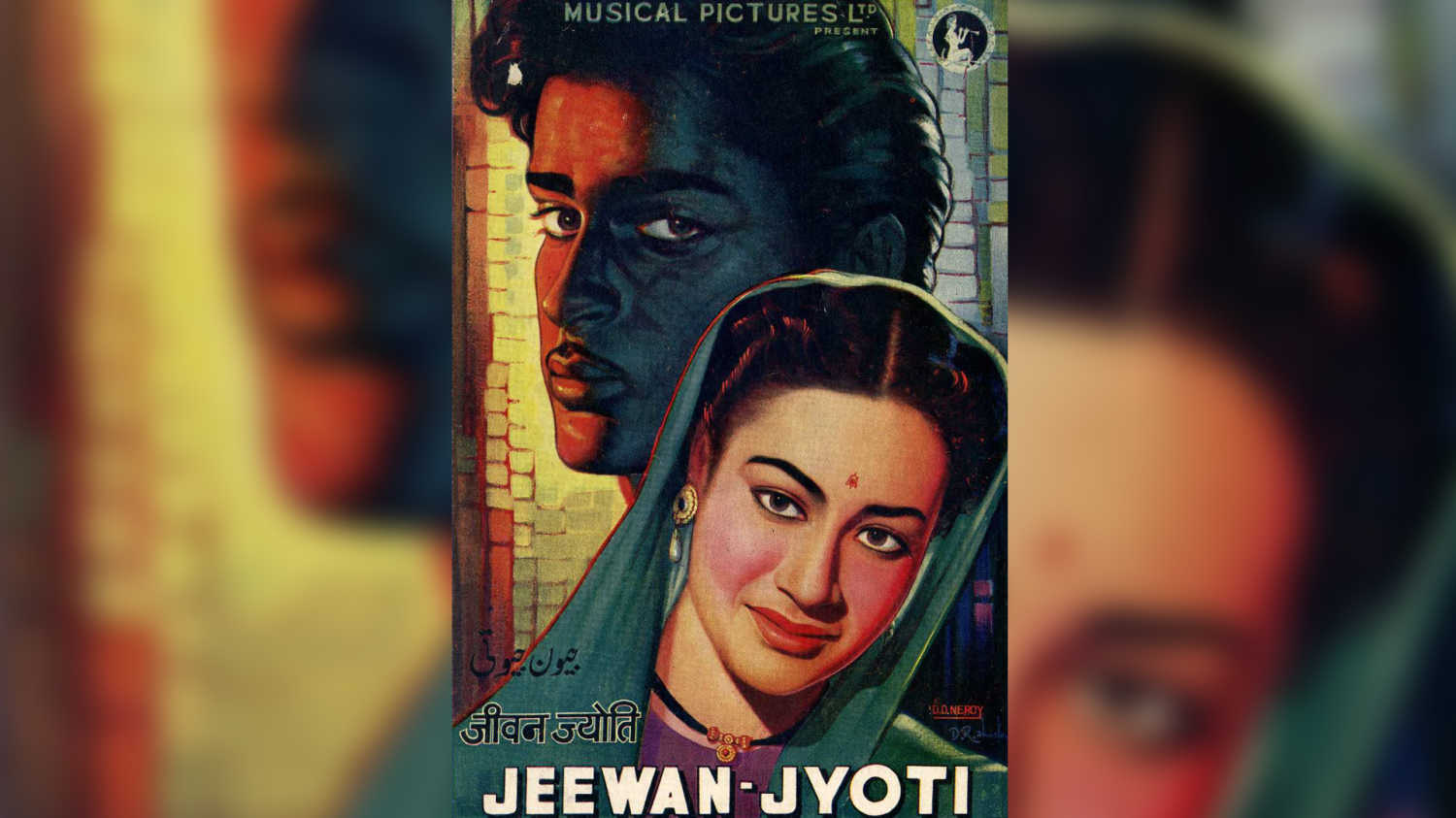On the star’s 90th birth anniversary, we revisit the classic that boasts of a fine performance by the then struggling actor.
Shammi Kapoor’s debut film Jeewan Jyoti (1953) is a gripping domestic drama and poignant tale of yearning
New Delhi - 21 Oct 2021 23:23 IST


Sukhpreet Kahlon
Shamsher Raj Kapoor, better known as Shammi Kapoor, ushered the era of young romance inspired by Western style and music in Hindi cinema with his flamboyant persona and distinctive dancing style.
In 1955, Shammi, second son of film and stage thespian Prithviraj Kapoor, married the star Geeta Bali and, on her advice, overhauled his screen image with Nasir Husain’s Tumsa Nahin Dekha (1957).
Getting rid of his pencil moustache and sporting a fashionable haircut, Shammi Kapoor sparkled as he incorporated the swagger and style of James Dean and Elvis Presley to create his distinctive image.
Tumsa Nahin Dekha catapulted Shammi Kapoor to fame and hits like Husain’s Dil Deke Dekho (1959), Subodh Mukherjee’s Junglee (1961), Lekh Tandon’s Professor (1962), Manmohan Desai’s Bluff Master (1963), Shakti Samanta’s Kashmir Ki Kali (1964), Vijay Anand’s Teesri Manzil (1966) and Samanta’s An Evening In Paris (1967) consolidated his stardom.

But before all the glitter and glamour, Shammi Kapoor started out as a junior artiste at his father's Prithvi Theatres in 1948 and made his film debut by signing on for the movie Jeewan Jyoti (1953), directed by Mahesh Kaul.
The film introduced a new pair to Hindi cinema, as it also marks the debut of Chand Usmani, who found the spotlight when she participated in a talent contest, the Kardar-Kolynos-Teresa Contest (Kolynos Toothpaste Smile). After Jeewan Jyoti, she was cast in AR Kardar’s Baap Re Baap (1955), Aravind Sen’s Amanat (1955) and Kidar Sharma’s Rangin Raatein (1956), which again featured Shammi Kapoor as the male lead.

Jeewan Jyoti is the story of a young man, Shyam Sunder aka Shammi (Kapoor), who falls in love with Kishori (Chand Usmani). Although Shammi’s mother (Leela Mishra) is opposed to the match on account of the difference in status between the families, Shammi’s sister supports the union and the two get married.
However, a tragedy occurs on the day of the marriage and the mother-in-law blames Kishori for the misfortune. The differences within the family are fuelled by relatives who are bristling at being jilted by Shammi and their stratagems widen the rift between the women in the home.
The couple is blessed with a baby boy and the mother-in-law showers all her love on the child, resolutely keeping the mother away. Kishori pines for her child and is driven to madness by the sheer weight of miseries that ultimately crush her.
Shammi Kapoor is splendid as the tormented husband trying desperately to strike a balance between his mother and wife. Caught between the two women and the mounting tension in the domestic sphere, he conveys his dilemma as well as the playfulness of a romantic hero with ease.
Although Jeewan Jyoti is largely serious in tonality, requiring Kapoor to portray elements of madness as the lovelorn husband, the comedic scenes offer glimpses of the physicality and silliness that were to become a cornerstone of the star’s performances in later years.
Kaul weaves an intricate story that maintains the suspense and remains gripping till the end. Dwarka Divecha and Anwar Pabani’s cinematography effectively builds the ambience of ruin that the film begins with, to reflect Shammi’s state of mind. SD Burman’s music and Sahir Ludhianvi's lyrics are highlights of the film, especially 'So Ja Re So Ja' sung by Lata Mangeshkar, which became a popular lullaby.
The new lead pair share good chemistry and convincingly portray a loving couple dedicated to each other through thick and thin. In fact, Jeewan Jyoti is remarkable for its exploration of the nuances of the relationship between a husband and wife and their genuine affection for each other. With elements of the supernatural, the tragic domestic drama is elevated to a poignant tale of yearning with the haunting lullaby lingering in the air.
The film also features a delightful supporting cast of Shashikala, Leela Mishra, Dulari and Nazir Hussain. Click here to watch the movie.





